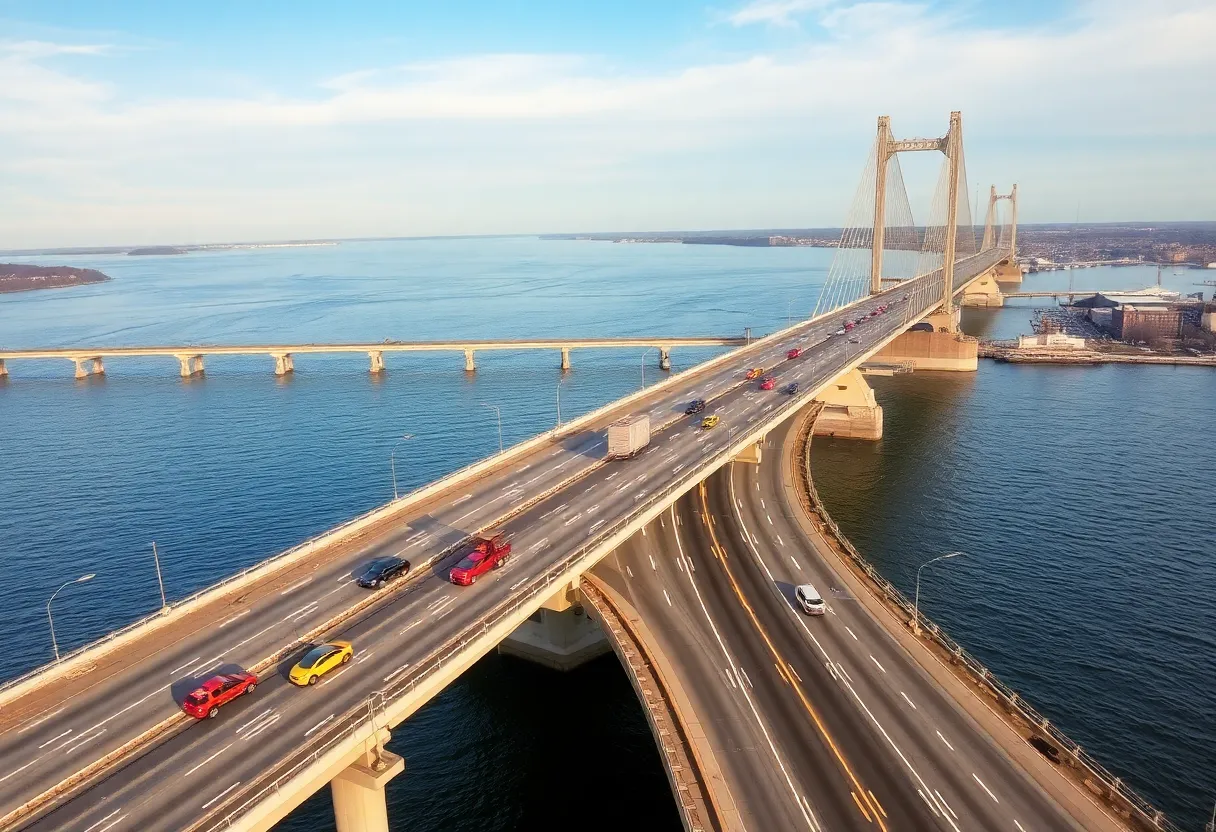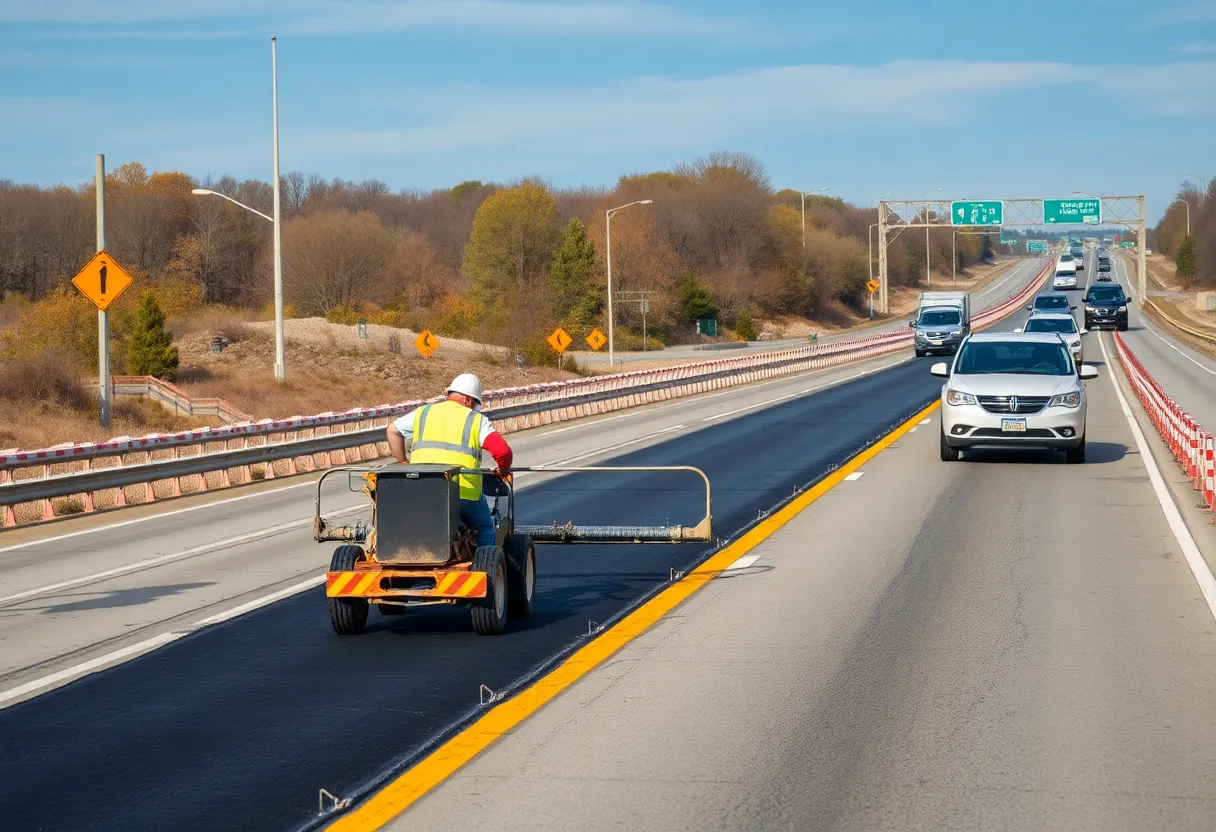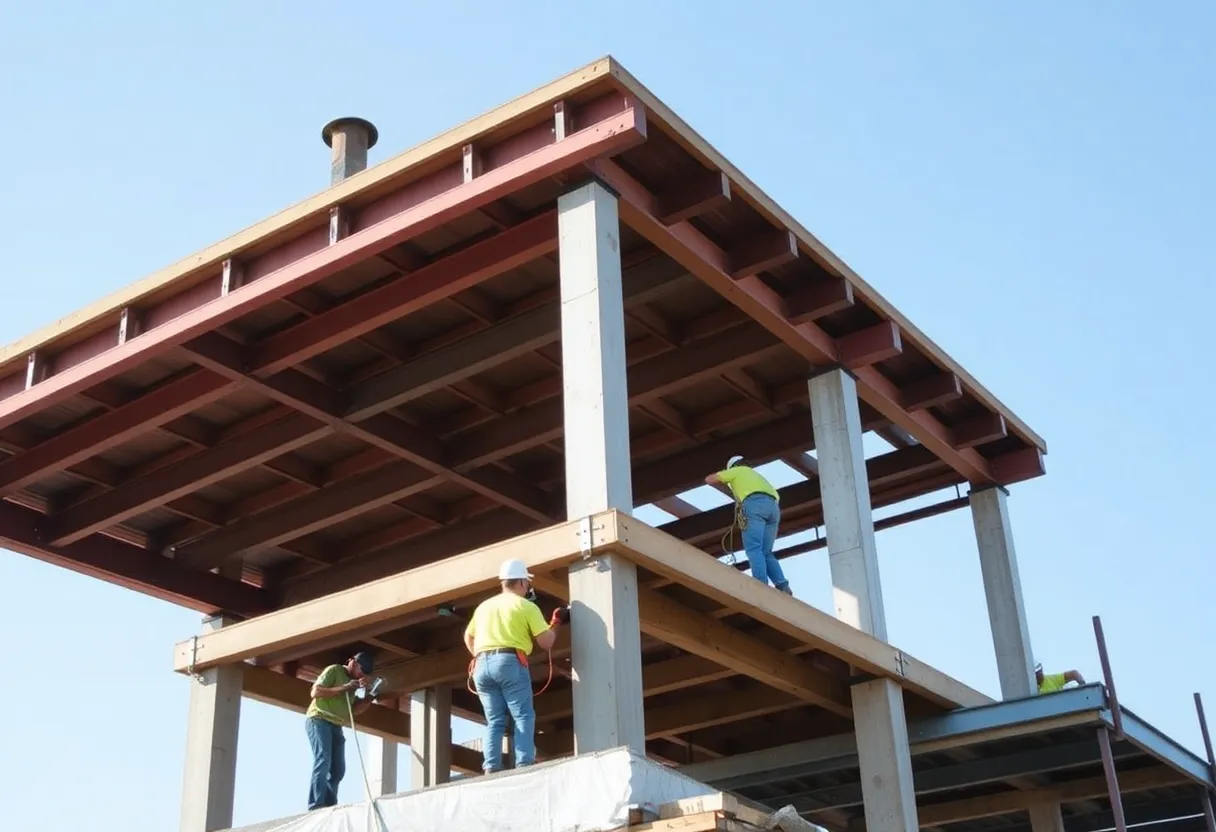News Summary
The Delaware River Joint Toll Bridge Commission has announced plans to raise toll rates on several bridges to combat rising construction costs. The toll adjustment will increase most passenger vehicle fees by 50 cents, while motorists without EZ-Pass will see their costs soar from $2 to $5. The toll hikes aim to ensure financial sustainability amid escalating infrastructure expenses, including significant increases in the prices of materials like asphalt and concrete. A rigorous public hearing process will accompany the proposed changes, allowing community feedback.
Delaware River Bridges Set for Toll Increases to Combat Rising Construction Costs
The Delaware River Joint Toll Bridge Commission is planning to increase toll rates on several bridges across the state to address the ever-growing costs associated with construction and infrastructure maintenance. This proposed “toll adjustment” aims to counterbalance the significant increase in expenses like construction financing that have escalated in recent years.
Starting next year, most passenger vehicle tolls will see a rise of 50 cents, bringing the fee to $2 per trip. Motorists who do not have EZ-Pass will face a more substantial increase, with the toll-by-plate cost jumping from $2 to $5. For larger vehicles that stand 8 feet or taller, the EZ-Pass rates will also rise by $2 to a new total of $6.50 per axle. Those who choose the toll-by-plate option will experience a $3 increase, resulting in an $8 per axle fee.
Bridges Affected by the Toll Increase
The Commission manages eight toll bridges that will be affected by the upcoming toll adjustments, which include:
- Milford-Montague (Route 206)
- Delaware Water Gap (I-80)
- Portland-Columbia (Routes 611, 46, 94)
- Easton-Phillipsburg (Route 22)
- I-78
- New Hope-Lambertville (Route 202)
- Scudder Falls (I-295)
- Trenton-Morrisville (Route 1)
Toll collections occur on the Pennsylvania-bound side of these bridges, but it is important to note that the toll increase does not apply to the Dingmans Bridge, which is privately owned and operates a separate toll system. Additionally, the Commission maintains a total of 12 non-revenue-generating “toll-supported” bridges, relying entirely on toll revenues, without any public funding or subsidies.
Financial Concerns and Infrastructure Maintenance
Executive Director Joseph J. Resta highlighted alarming financial projections for 2026, predicting a possible shortfall in the agency’s general fund reserve balance and debt service coverage ratio. They are striving to ensure sustainable revenue streams as they face escalating construction costs, which include a 28% increase in hot-mix asphalt, a 46% jump in concrete, a 66% rise in structural steel, and a 44% surge in fuel prices over the past five years. As infrastructure continues to age, the need for constant oversight and maintenance funding remains a pressing concern.
Public Hearing Process
In contrast to other toll agencies, the Delaware River Joint Toll Bridge Commission must undergo a rigorous public hearing process when proposing toll increases. This procedure includes a public comment period and virtual hearings, allowing community members to voice their opinions.
For those paying without EZ-Pass, the increased rates are reflective of added expenses tied to billing and processing payments. It is also noteworthy that the commission eliminated cash tolls from the system, shifting exclusively to electronic payments as of January 2024.
Comparative Toll Structures
Similar toll increases took effect on bridges managed by the Delaware River Port Authority as of September 1, 2024, with rates for passenger vehicles rising from $5 to $6.50 on notable crossings. The last toll hike for these bridges was 13 years ago, aiming to fund essential safety upgrades and infrastructure improvements.
For senior citizens and frequent commuters using New Jersey EZ-Pass, discounted programs are available, including an $18 monthly credit for regular crossings. Further, the Pennsylvania Turnpike has adopted a new system called Open Road Tolling, which eliminates toll booths and introduces electronic gantries for toll collection, enhancing safety and efficiency for drivers.
The new tolling structure on the Turnpike now charges a flat rate of $1.09 per gantry, in addition to 7 cents per mile traveled, reflecting the trend of modernizing toll collection processes to accommodate evolving traffic and infrastructure demands.
Deeper Dive: News & Info About This Topic
Additional Resources
- NJ Herald: Toll Increases on Delaware River Bridges
- Wikipedia: Toll Bridge
- NBC Philadelphia: Cashless Tolling on NJ-PA Bridges
- Google Search: Toll Bridges NJ PA
- PA Turnpike: Open Road Tolling Explained
- Encyclopedia Britannica: Toll
- Fox29: Cashless Tolling Enforcement
- CBS News: Toll Increases PA NJ Bridges
Author: Construction FL News
The FLORIDA STAFF WRITER represents the experienced team at constructionflnews.com, your go-to source for actionable local news and information in Florida and beyond. Specializing in "news you can use," we cover essential topics like product reviews for personal and business needs, local business directories, politics, real estate trends, neighborhood insights, and state news affecting the area—with deep expertise drawn from years of dedicated reporting and strong community input, including local press releases and business updates. We deliver top reporting on high-value events such as the Florida Build Expo, major infrastructure projects, and advancements in construction technology showcases. Our coverage extends to key organizations like the Associated Builders and Contractors of Florida and the Florida Home Builders Association, plus leading businesses in construction and legal services that power the local economy such as CMiC Global and Shutts & Bowen LLP. As part of the broader network, including constructioncanews.com, constructionnynews.com, and constructiontxnews.com, we provide comprehensive, credible insights into the dynamic construction landscape across multiple states.





